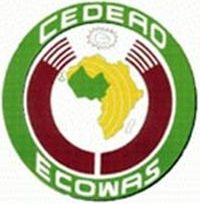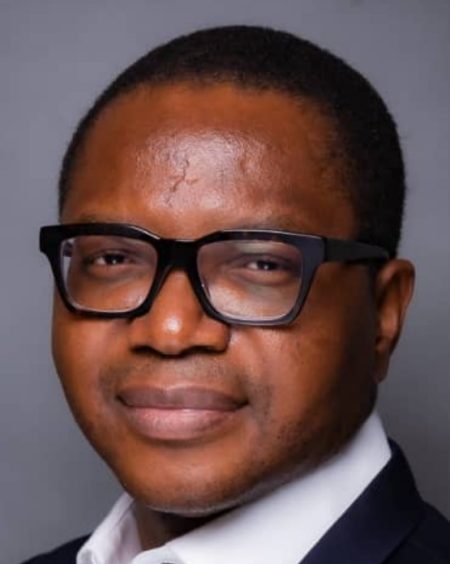 Mkpoikana Udoma
Mkpoikana Udoma Port Harcourt — The Inter-Governmental Action Group against Money Laundering in West Africa, GIABA, has expressed concern over the increasing cases of money laundering and financing of terrorism in West Africa.
GIABA, an institution of the Economic Community of West African States, ECOWAS, established by the Authority of its Heads of State and Government, is responsible for strengthening the capacity of member states in the prevention and control of money laundering and terrorist financing.
The Director General of GIABA, Mr. Edwin Harris Jr., said money laundering and terrorism financing severely undermine sustainable development by eroding social and human capital, threatening social and political stability, causing an artificial rise in the cost of business, and driving away investment.
Harris Jr. spoke at the 15th edition of the GIABA Open House Forum on Anti-money Laundering and Combating the Financing of Terrorism Awareness for Youths, held at the University of Port Harcourt on Tuesday.
Represented by the Principal Officer, Communication and Advocacy, GIABA, Mr Tim Melaye, Harris urged states in West Africa to act together in order to combat the threat of money laundering and financing of terrorism, not only as part of protecting Africa’s economy against criminal infiltration, but also to enhance the rule of law, deepen regional integration, peace and security.
He said the Open House Forum was created to sensitise the youths to their responsibilities and obligations under the Anti-Money Laundering and Counter-Financing of Terrorism, AML/CFT, regime towards fostering and strengthening partnership between GIABA and the youth in the fight against transnational organised crimes, in particular money laundering and terrorist financing in the region.
“Money laundering (ML) and the Financing of Terrorism (FT) are not new phenomena in West Africa. Typologies have already identified a vast number of ML cases in the region; cases of FT are also now beginning to be identified in several countries. These cases are obviously intimately linked to corruption.
“The ECOWAS states are under serious threat of social dislocation or worse unless action is taken now. It is also pointedly within GIABA’s specific mandate to facilitate the adoption and implementation by member States of measures against ML and FT, taking into account specific regional peculiarities and conditions.
“This undercuts the ability of the Member States to initiate or accelerate development. The proceeds of crime fuel corruption, which in turn facilitates the commission of crimes and undermines the rule of law. The result of inadequate rule of law is a sense of general insecurity, which renders the state incapable of attracting enough foreign direct investment. Government can no longer guarantee the safety of its financial system. Over the past several years, political upheavals due to resource control or simple greed have left many parts of the region in total chaos, with resources for reconstruction inadequate or simply unavailable. Meanwhile, the criminal justice systems, including law enforcement and the overall administration of justice, remain too weak, lacking capable human and material resources to make any meaningful or lasting difference,” he said.
The GABIA boss said there was need to engage the youths in the fight against crime and other unwholesome behaviours, hence the 15th edition of the Open House Forum, which theme is “The Role of the youth in the fight against transnational organized crime,” is to raise awareness in a concerted and coordinated manner on the need to protect national economies and financial systems of ECOWAS member States against the laundering of proceeds of crime.
He stated: “Organised crime knows no borders and all nations must cooperate completely to deal with this threat. Recognition of the negative effects of money laundering and terrorist financing has prompted the international community to take measures to combat them. The FATF 40 Recommendations represent a comprehensive set of acceptable standards against money laundering and terrorist financing. They have been recognized and approved, adopted and accepted by 187 countries and jurisdictions all over the world.
“GIABA alone cannot overcome these problems. Whatever efforts we make at the regional level will make little impact without strong national commitments and institutions. We need the support of national authorities, ECOWAS, development partners and the general public in our member States in the delivery of our activities to ensure the prevention of criminals from undermining the credibility of our financial systems through integration of dirty money.”
Also speaking, the Chief Executive Officer of Nigerian Financial Intelligence Unit, Mr Modibbo Hamman, said the issues of AML/CFT appear to have been far removed from the general population of the sub-region of West Africa, particularly among the youth, who are major and critical actors in money laundering and financing of terrorism, sometimes ignorantly hence the need for this Forum.
Hamman, represented by the Associate Director, Services, NFIU, Mr Okwudili Ekeji, said: “Closing this knowledge gap through this Forum is intended to build capacity of the youth to be reliable partners in the fight against money laundering and related crimes, as well as form a strong base of informal educators, who will carry on the job of creating awareness amongst the youth population and the society at large.
“As part of the capacity building, it is important for the youth to understand that crime does not pay in the long run. With the global, regional, sub-regional and national efforts at combating crimes of money laundering, financing of terrorism and transnational organized ones, the criminal does not have far to run and cannot hide for too long before the long arms of the law caught up with him/her. It is wisdom to shun crime completely. It is in the best interest of the youth to avoid associations that may lead them to crime.”
For his part, the Vice Chancellor of the University of Port Harcourt, Prof. Owunari Georgewill, cautioned the youths against subjecting themselves as targets to be recruited and radicalized for terrorism and money laundering.
Follow us on twitter



